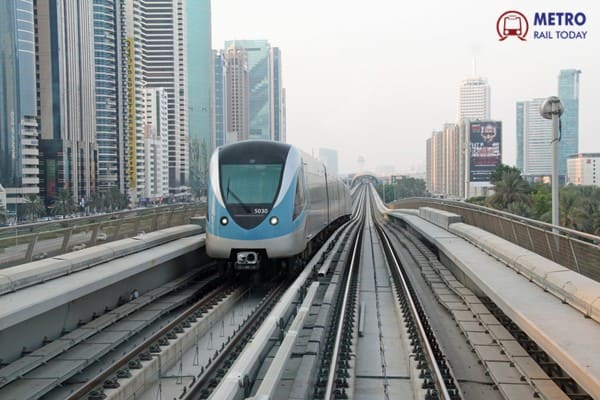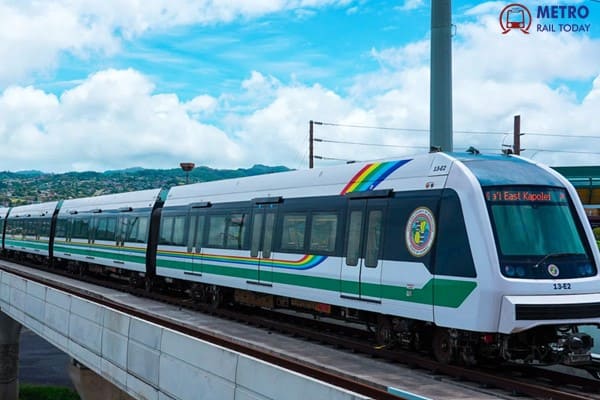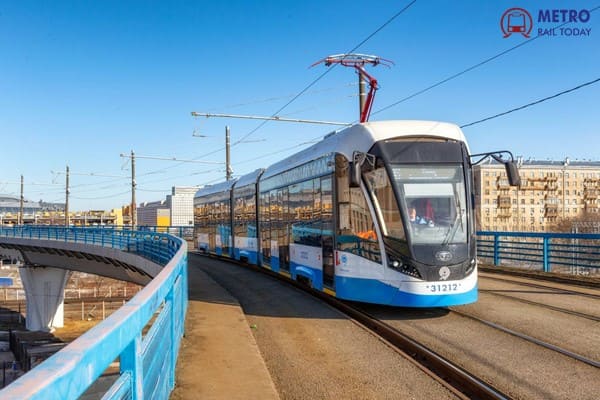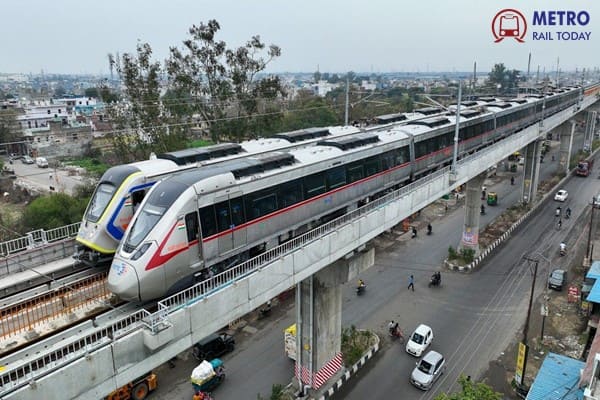 NCRTC installs India’s First “Solar on Track” in a Metro or RRTS System
NCRTC installs India’s First “Solar on Track” in a Metro or RRTS System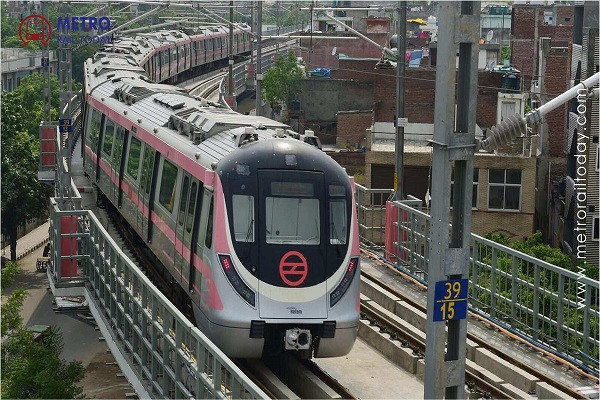 Delhi Metro to expand 450 km network by 2027, Take 10.9 lakh Vehicles Off Roads Daily by 2031
Delhi Metro to expand 450 km network by 2027, Take 10.9 lakh Vehicles Off Roads Daily by 2031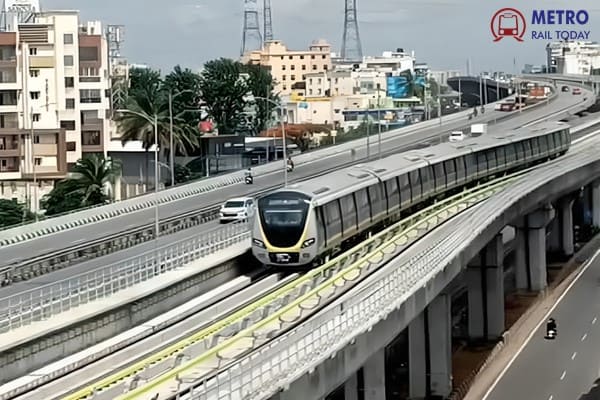 Hitachi Rail bags Automatic Fare Collection System Contract for Bangalore Metro Phase 2
Hitachi Rail bags Automatic Fare Collection System Contract for Bangalore Metro Phase 2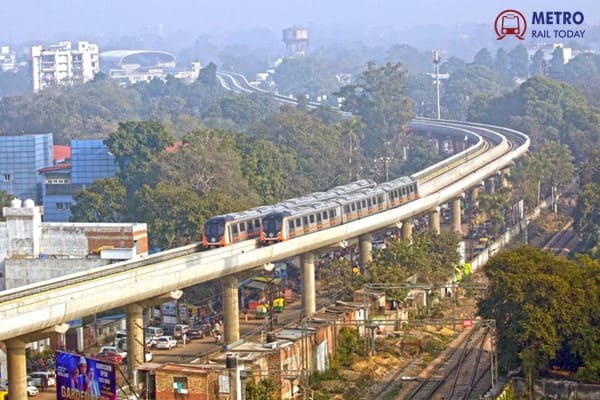 Efkon India bags ₹164 crore contract for Electrical & Mechanical works of Kanpur Metro Line 2
Efkon India bags ₹164 crore contract for Electrical & Mechanical works of Kanpur Metro Line 2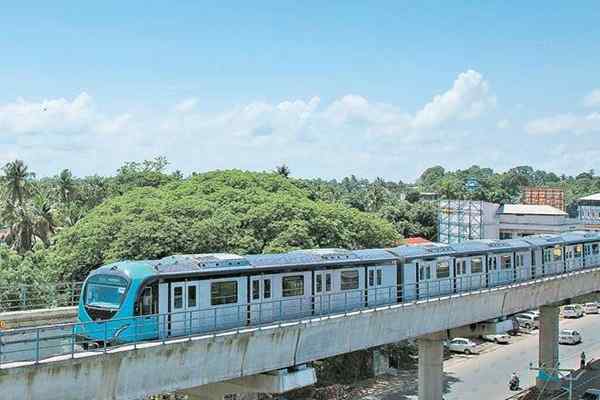 Kochi Metro Pink Line likely to begin Operations by June 2026
Kochi Metro Pink Line likely to begin Operations by June 2026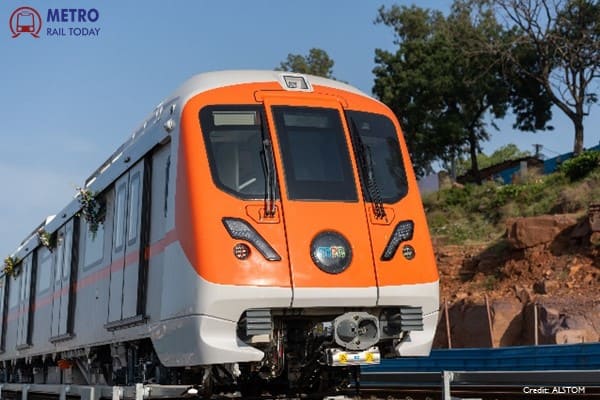 Bhopal Metro Phase 1 Cost Escalates to ₹10,033 Crore — 43% Higher Than Original Estimate
Bhopal Metro Phase 1 Cost Escalates to ₹10,033 Crore — 43% Higher Than Original Estimate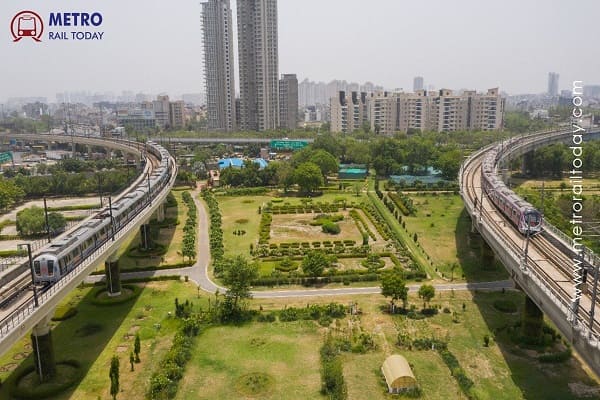 India to add over 300 Kilometres of New Metro and Regional Rail Network by 2026
India to add over 300 Kilometres of New Metro and Regional Rail Network by 2026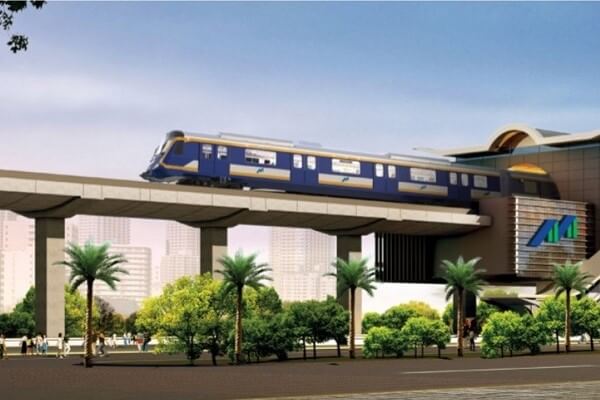 Maharashtra to launch Unified Metro Rail Authority for Mumbai Metropolitan Region
Maharashtra to launch Unified Metro Rail Authority for Mumbai Metropolitan Region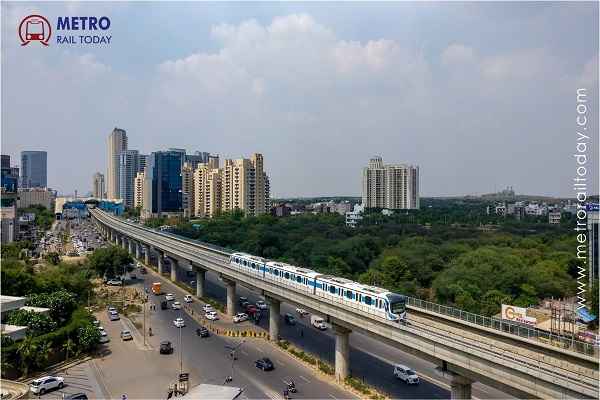 India charts the future of Urban Transport at UMI 2025: Mobility as the Backbone of Development
India charts the future of Urban Transport at UMI 2025: Mobility as the Backbone of Development Herrenknecht to establish India's Largest TBM Manufacturing Facility in Chennai
Herrenknecht to establish India's Largest TBM Manufacturing Facility in Chennai
Bearing Pad falls from Dhaka Metro Rail Viaduct, Killed One Pedestrian, Two Injured
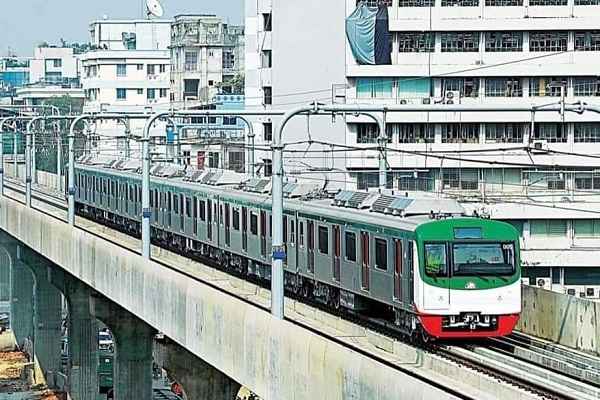
Dhaka, Bangladesh (Metro Rail Today): A tragic incident on Sunday has cast a shadow over Bangladesh’s flagship urban transport project after a bearing pad from Dhaka Metro’s elevated viaduct fell onto a busy street, killing one pedestrian and injuring two others.
The accident occurred around 12 noon on October 26 near Farmgate Station on the MRT Line-6 corridor, when a 140–150 kg rubber-and-steel bearing pad suddenly detached from Pier No. 433 and crashed to the ground below.
One Killed, Two Injured as Heavy Bearing Pad Falls
The falling pad struck Abul Kalam, 35, killing him instantly and then smashed into a roadside tea stall, injuring stall owner Amir Ali and another passer-by. Eyewitnesses reported a loud crash that sent shock waves through the crowded area.
Police immediately cordoned off the site and recovered the victim’s belongings, including his passport.
Dhaka Mass Transit Company Limited (DMTCL) suspended all metro operations between Uttara and Motijheel at 12:30 p.m., citing safety concerns. Services partially resumed at 3 p.m., but the section through Farmgate remained closed pending inspection and repairs.
Probe Committee Formed to Determine Cause
Road Transport Adviser Muhammad Fouzul Kabir Khan visited the accident site and announced a five-member inquiry committee, led by Bridges Division Secretary Mohammad Abdur Rouf, to determine whether the failure stemmed from design flaws, poor materials, or negligence.
Authorities pledged to provide Tk 5 lakh in compensation and full funeral support to the victim’s family, along with a job opportunity for a dependent.
“This is an unfortunate and unacceptable tragedy. We will hold those responsible to account,” Adviser Kabir told reporters.
Second Bearing Pad Failure in 13 Months
This marks the second bearing pad dislodgement on the Dhaka Metro within just over a year. In September 2024, a similar pad had fallen from Pier 430, near the same Farmgate stretch, though no injuries were reported then.
That earlier incident led to emergency inspections and the formation of a probe committee, which recommended several corrective measures. DMTCL officials claimed that all viaduct piers had been checked and certified safe after those repairs — a claim now under intense scrutiny.
Experts Point to Possible Design or Quality Issues
The NKDM Association — comprising Nippon Koei (Japan), Mott MacDonald (UK), and Development Design Consultants (Bangladesh) — was responsible for the metro’s design and supervision.
Engineering experts, however, described the pad ejection as “highly unusual and alarming.”
“For a bearing pad to fall off an elevated structure indicates potential deficiencies in design assumptions or installation safety measures,”
said Prof. Shamsul Hoque, transportation engineer at Bangladesh University of Engineering and Technology (BUET).
He called for an independent international safety audit, particularly because the Farmgate section sits on a tight curve where the line transitions from two to three levels, producing complex vibration and stress patterns.
Quality Control and Oversight Under the Lens
BUET’s 2020 laboratory tests had already flagged substandard bearing pads supplied by contractor Italian-Thai Development PLC (Ital-Thai) for parts of the viaduct. Although some faulty batches were replaced, others already installed were not recalled — a decision now facing criticism.
Adding to concerns, DMTCL has reportedly been operating without mandatory safety certification from the Dhaka Transport Coordination Authority (DTCA), as required under the Metrorail Act 2015, and has yet to obtain insurance coverage for passengers and infrastructure.
Industry View: Call for Stronger Oversight
Mrs. Mamta Shah, Managing Director & CEO, Urban Infra Group, and Managing Editor of Metro Rail Today, emphasized that this tragedy highlights the urgent need for independent quality checks across all stages of metro construction and maintenance:
“The Dhaka Metro incident is a stark reminder that safety must never be compromised for speed or cost. Every structural component — especially critical load-bearing elements — requires third-party testing, certification, and continuous monitoring. Public confidence in mass transit depends on unwavering transparency and accountability.”
She urged South Asian metro operators to establish independent safety review boards and regional knowledge-sharing frameworks to prevent such incidents in the future.
Investigation and Safety Audit Ahead
A technical team has since reinstalled the bearing pad and conducted load tests on the affected span. The newly formed committee will perform forensic analysis of the failed component, review previous probe reports, and recommend permanent design modifications.
DMTCL officials said full services on the Farmgate–Motijheel stretch would resume only after a detailed safety clearance.
Restoring Public Trust
Launched in December 2022 as Bangladesh’s first metro rail under the Dhaka Mass Rapid Transit Project, the 20-km Line-6 serves around 450,000 passengers daily and has been hailed for easing Dhaka’s notorious traffic congestion.
But two bearing-pad failures in consecutive years have raised serious safety concerns. Experts warn that restoring public trust will depend on transparent investigation, corrective action, and stronger safety governance.





